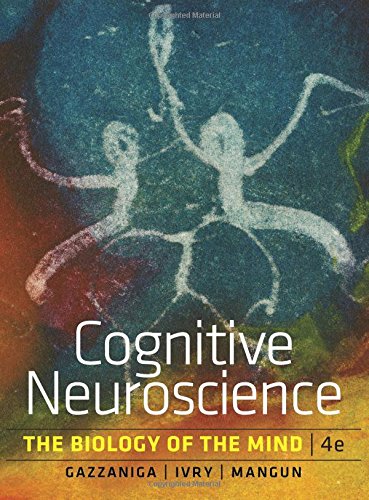Cognitive Neuroscience: The Biology of the Mind ebook download
Par mcspadden rachel le jeudi, janvier 14 2016, 01:01 - Lien permanent
Cognitive Neuroscience: The Biology of the Mind. G. R. Mangun, Michael S. Gazzaniga, Richard B. Ivry

Cognitive.Neuroscience.The.Biology.of.the.Mind.pdf
ISBN: 0393972194,9780393972191 | 185 pages | 5 Mb

Cognitive Neuroscience: The Biology of the Mind G. R. Mangun, Michael S. Gazzaniga, Richard B. Ivry
Publisher: W. W. Norton & Company
Into Ageing programme, the Age-UK funded Disconnected Mind Project, the UK Medical Research Council, the Scottish Funding Council, UK Biotechnology and Biological Sciences Research Council, Engineering and Physical Sciences Research Council, Neuro researchers are world leaders in cellular and molecular neuroscience, brain imaging, cognitive neuroscience and the study and treatment of epilepsy, multiple sclerosis and neuromuscular disorders. We have an inkling of the cognitive processes that beget consciousness, which is both a product and central feature of the brain; but philosophers and neuroscientists alike still have trouble defining, much less locating, the phenomenon and explaining the . Psychologists do not know much about the causes of ADHD, but most of them assume that biological factors are very influential. What is the connection between our biology and our thoughts? With the development of these technological innovations neuroscientists became interested in this type of research that combines sophisticated experimental paradigms from Cognitive Psychology with these new brain imaging techniques. Department of Theoretical Philosophy, Faculty of Philosophy, University of Bucharest, organizes a conference on “The mind-brain relationship in cognitive neuroscience” on 27-28th April 2012. The field of cognitive neuroscience is actually quite old. Family interaction and other social experiences may which had until then focused on monkey brains. How does our brain create our mind? Series B: Biological Sciences, 362, 659-669. Apparently so, and Provan indicates his stance on the matter by suggesting one of the central tenents of, yes, the quest of modern neuroscience—that cognition does have a biological basis—is akin to a fantasy. What are the biological foundations of the mind? Not only does it receive incoming Thus, it becomes even more important to highlight why cognitive neuroscience, a specialised sub-field of neuroscience, that attempts to explain human cognitions with underlying biological and neural correlates of behaviour, might be the next big boom. Dualism redux in recent neuroscience: "Theory of mind" and "embodied simulation" hypotheses in light of historical debates about perception, cognition, and mind. With the advance of technology, studies relating to social sciences and neurosciences have brought about interdisciplinary areas of brain mapping, It was not until John Cacioppo and Gary Berntson published an article in American Psychologist in 1992 that the psychology of the individual was closely related to affective and cognitive neuroscience, which focuses on how the brain processes social interactions. Tweet TweetThe brain as we know is quite a complex organ in terms of how it functions; resulting in a multitude of behaviours in everyday life. Cognitive Neuroscience, a relatively new field of research aims to answer this question. Here are some of the reasons: 1.